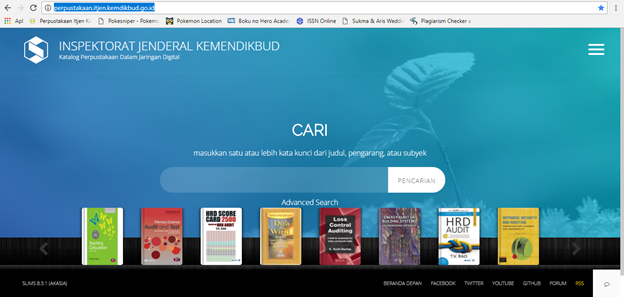Society and information cannot be separated. Information is an important aspect in supporting all human works, especially now that the digital era has integrated with the current society. It is triggered by the characteristics of people who want to obtain information quickly, precisely and accurately. Using sophisticated technology, all information needs can be met. Not only looking for information, they can also share information to others. This phenomenon is known as information society.
In line with this development, libraries as information management bodies are required to manage the information explosion that is currently happening. Librarians must have the ability to gather information so that it can be applied in library management. Librarians always have up to date, interesting and accurate information so that library users are more interested in the information that the library has, even though there is now the internet.
Now, a question arises “Do we need a library if we now have the internet?”
Libraries are still needed, with a lot of information available on the internet, a lot of it is false and not well organized and some of it is dangerous information. Most credible information is not fully available. Thus, users need to access material through libraries that have librarians who are skilled in searching for information efficiently, able to identify genuine sites and able to gain access to paid sources through a license. A librarian must master information technology well to secure library system information. A book is a window to the world, librarians are cyber agent and the key to information.
Libraries as information provider institutions have adopted 4.0 technology. For example, the use of card catalogs that has been changed to the use of OPAC (Online Public Access Catalog), the use of library automation system applications, and others. The advantages of libraries in adopting technology are making it easier for librarians to manage data, improve the quality of library services, making it easier for users and expanding the network. The use of library information systems will provide many conveniences, both for librarians and users. The need for more diverse library information encourages libraries to update or improve the automation system applications that are being implemented, and should encourage librarians to continue to improve their ability to keep up with its developments.
The obstacles faced by librarians are following the development of library information systems, where the implementation of automation systems in libraries in using applications, such as using SLiMS, librarians are not used to operating SLiMS in library management activities, so they still need time to learn. Efforts that can be made by a librarian are by providing training for librarians on how to use SLiMS. Through this training, librarians are expected to be able to run SLiMS to support their work in the library. Librarians can also continue to be active in training activities to develop their skills.
A system has strengths and weaknesses. But over time librarians will get used to the system implemented in the library. They will continue to learn and improve their skills.
Author: Nur Diana Fajriyah dan Dessy Harisanty, S.Sos., M.A.
Harisanty, Dessy; Shafira, Ellia; and Isbandy, Salsabiela Hasna, “Library Automation System in Library University of Sebelas Maret Indonesia: Migration From UNSLA to SLiMS” (2020). Library Philosophy and Practice (e-journal). 4376.https://digitalcommons.unl.edu/libphilprac/4376 Link : https://digitalcommons.unl.edu/libphilprac/4376





